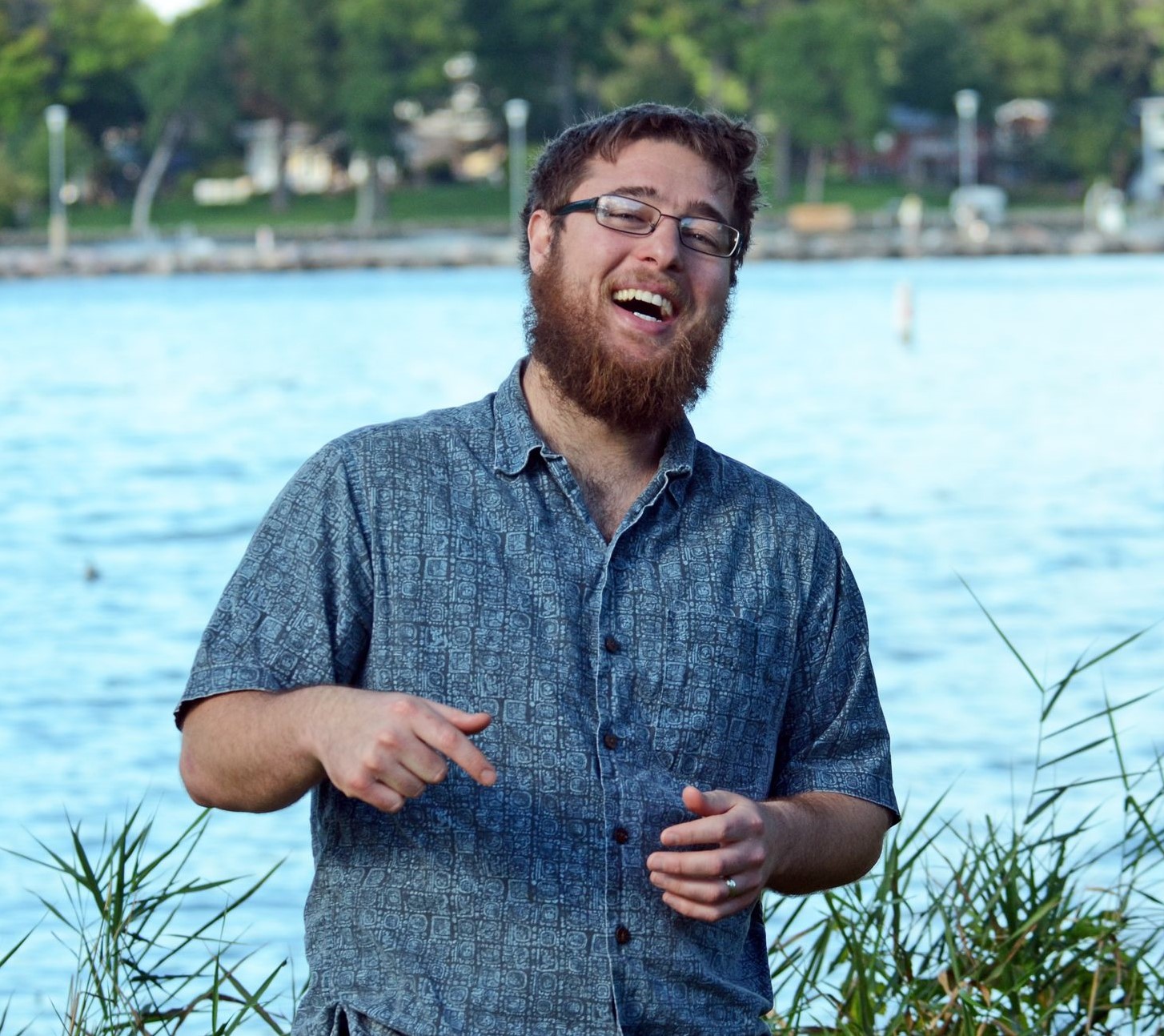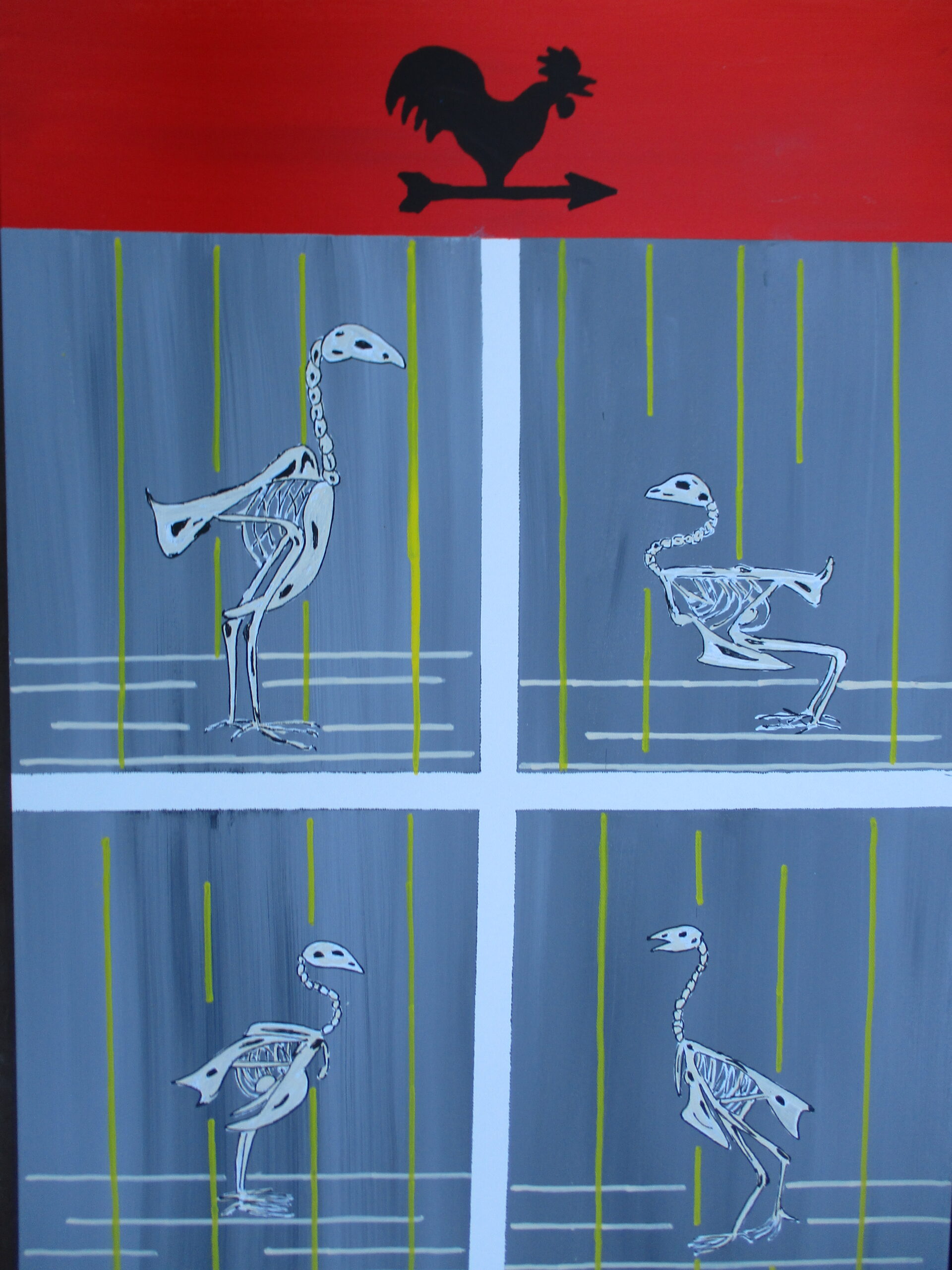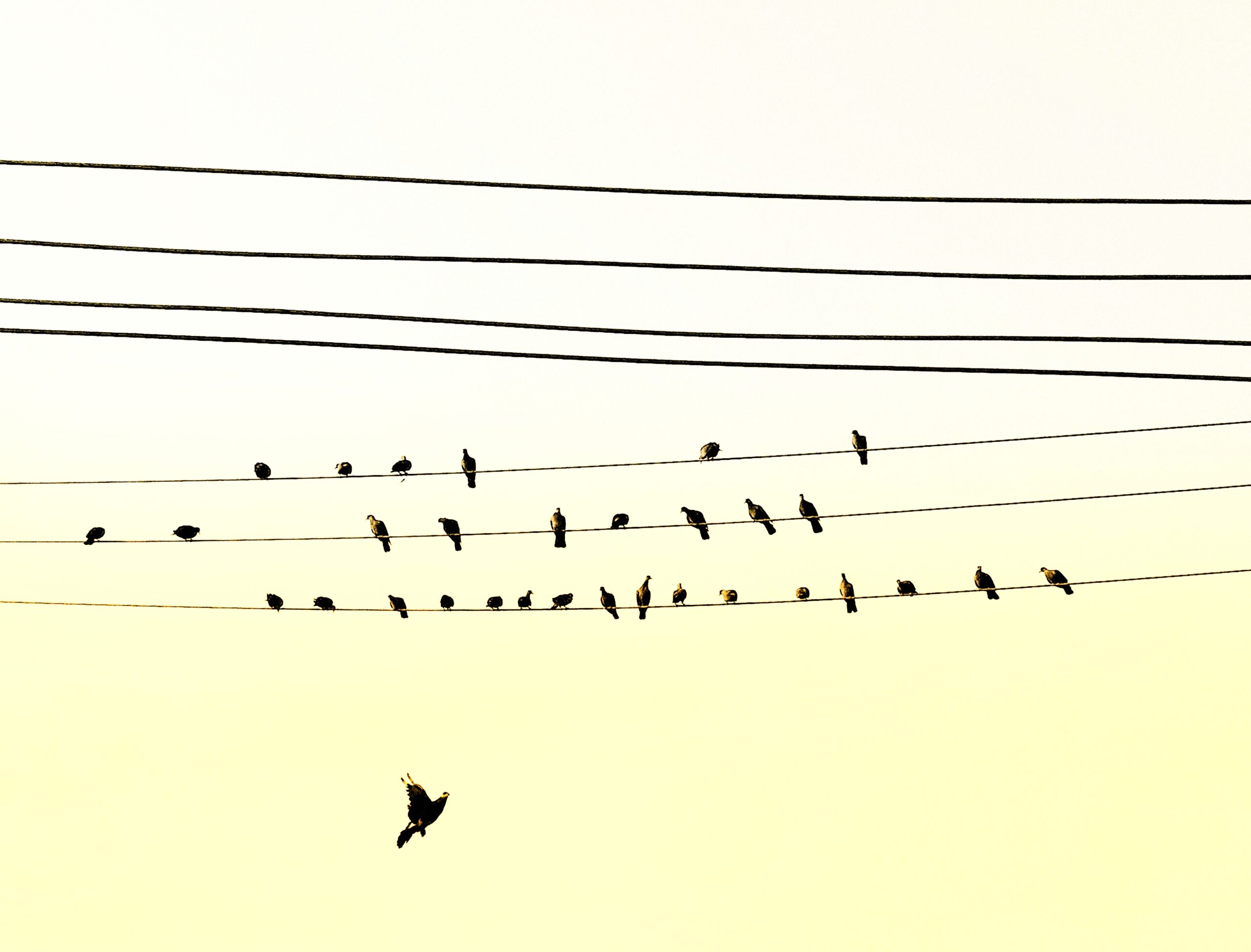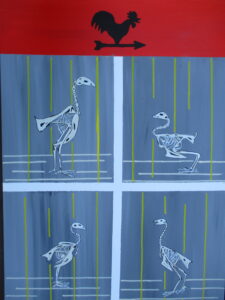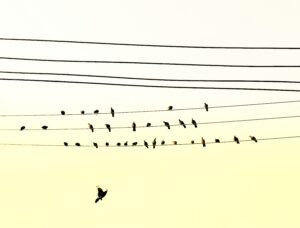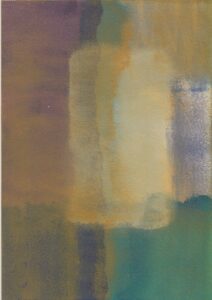Grocery Store Scientist
Joshua Gottlieb-Miller
Nimi reads a draft of a poem she appears in
AT OUR ANNUAL THANKSGIVING PREP MEETING BOSS SAYS HE IS THANKFUL FOR OUR CUSTOMERS
If you get an EZ-Bake Oven when you’re 6, you become a baker, a regular says. His sister became a baker, and if you get a plastic press with movable type, chosen over rock’em sock’em robots, you become a printer, he says, about himself.
Do you fear being the invention of someone else’s déjà vu—or an imprint, or I felt I feel—
I like to talk about books I haven’t read.
When PJ welcomes Nimi to permanent brain damage—what her concussion literally meant—she hesitates, so I joke PJ and I are figments of her mind. I can’t tell if Nimi believes me and in her second hesitation I start to worry.
The trucker walking in through the back door to buy himself a turkey and cheese sandwich he delivered the day before.
Michelle says, ‘we’re here for a good time, not a long time’ is her way of saying ‘Have a nice day!’
***
https://vimeo.com/manage/videos/714752074
(Interview with Nimi Ehr, conducted by Joshua Gottlieb-Miller; transcript below)
[But I wonder—you can see how you inspired this poem. And you can see how you were quoted in the other poem.
Which poem do you prefer?]
Mmm— I think I preferred the other one, because I recognize more people in it. I guess I’m just thrown off by Nabokov, I have no idea who that is.
[He’s an author.]
Okay, well I figured as much Mr. Poetry—
[Lolita?]
No. What?—
[Lolita!]
I’m sorry, I like science! [Both laugh] I don’t read books for fun, I read them for information. [Both laugh]
[Would you say that also characterized your time at the grocery store?]
Well, I did enjoy our produce encyclopedia. But yeah, I guess that’s not great literature. It’s just an encyclopedia.
[I wonder if you’re the only person to ever enjoy a produce encyclopedia?]
C’mon. I can’t be the only one.
[Nimi, you worked in a grocery store?]
Yes I did.
[You are a scientist? You work in a lab?]
Mmm— I’m a part-time scientist. I work in the lab when I need to.
[What do you do?]
Mmm— I’m basically trying to sell technology that half-way exists. [Interviewee laughs.] We’re creating something new. So we’re trying to create technology and find people to buy it, simultaneously. So—
[What’s the technology do?]
It recovers phosphorous from waste-water, and phosphorous is very valuable as a fertilizer, but it’s hazardous in water because it causes algae blooms and that chokes out all the fish and other living things, so we’re helping prevent that phosphorous from getting into water-ways, and extracting it as a fertilizer so— farmers can actually apply it right where they need it, so that it doesn’t go everywhere. Yeah—
[You’re protecting the food-supply?]
Yes, yep, mmhmm. Protecting the waterways and our food-supply.
[I wonder that— the title of the poem is “Bouquet”—]
Mmhmm.
[I wonder about the connection between the flowers and the grocery store and the
work that you are trying to do.]
I do tend to like plants. [Interviewee laughs] And other living things [Interviewer laughs] so there’s certainly a connection there.
[So you didn’t hate working in a grocery store, then?]
No, I never hated working in the grocery store.
[Did you want— did you have any kind of relationship with the food itself, or did it just not matter?]
God I love spoils. I loved when we had cookie spoils. [Interviewee laughs]
And, yeah, I definitely had a— I don’t know, I cared about the food, I paid attention to where it came from, because that was always interesting, to see when things would switch from like Mexico to Guatemala to Peru, just to see and imagine where they were coming from.
[Country of origin?]
Yeah, country of origin, totally. See what was in it, where it was cane sugar or beet sugar was kind of interesting, and if it was beet sugar it wouldn’t specify that it was. Yeah, the subtleties, yeah, mattered.


